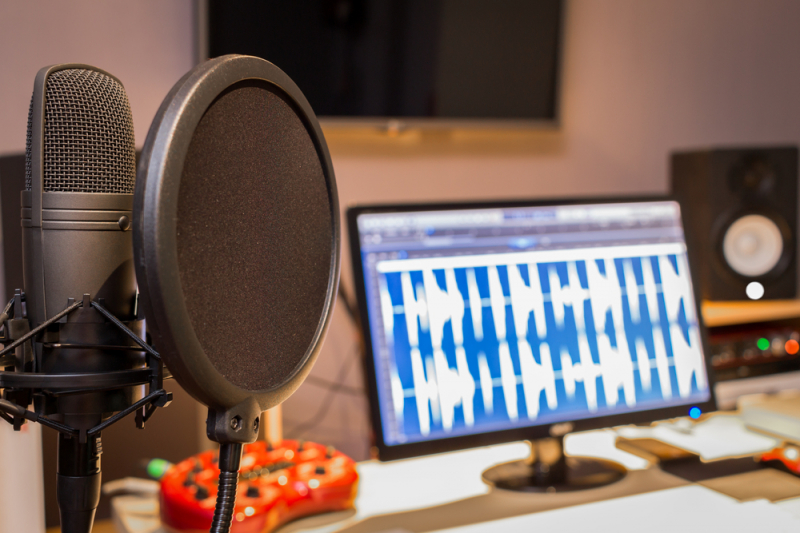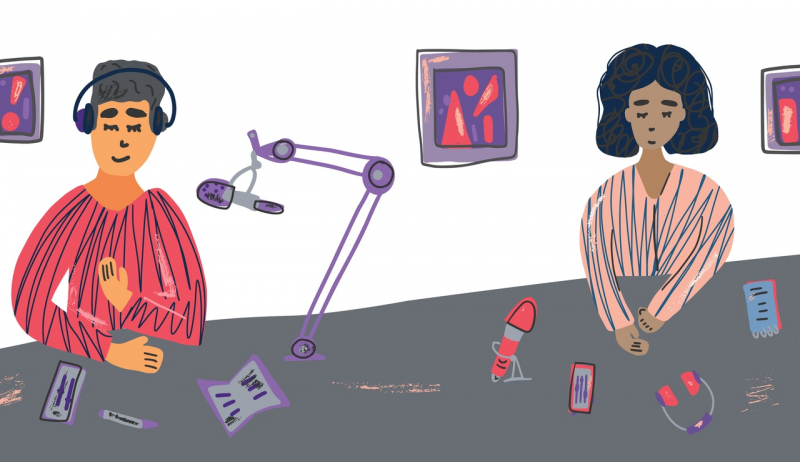What makes podcasts different from vlogs on YouTube?
The question of what exactly a podcast is is still open. For example, can an audio track that’s been cut from a YouTube video be considered a full-fledged podcast? And what about talk shows on the radio? Or voiced articles or chapters from a book?
In general, podcasts are regular audio shows that are distributed on the internet by means of the RSS technology. On the whole, transferring information in audio format has peculiarities of its own. This format is more involving, as it makes the subscriber use their fantasy, thus making the experience more personal.

Podcasts have several genres, the most widespread being an interview. It might well be the simplest genre, production-wise, where the anchorperson just talks to one or several invited guests. Solo podcasts are fewer in number, as it turns out that talking alone with a microphone is a lot harder psychologically.
Then again, it is the narrative podcasts that are the most popular. The genre is extremely favored by the American audience and in the West in general. They usually involve the work of a professional team of reporters, high-quality sound effects and music, which help to amplify the participation effect. Quite naturally, the world’s most famous podcast, Serial, is a narrative one: a multi-episode journalist investigation of criminal cases in America. The first two seasons have been downloaded over 300 million times, which is the absolute record in the podcast world.
In Russia, there are almost no narrative podcasts, as they are very hard to produce and require a full-fledged production team; making a narrative podcast on one’s own is next to impossible. One of the few examples of a narrative Russian podcast is the series about the 2002 Nord-Ost siege.

On podcasts in Russia
The key feature of the current state of podcasts in Russia is its uncertainty. If in the United States, the production of podcasts is a business of its own, in Russia, it is something that’s usually done by individuals. If we were to try naming Russian full-fledged podcasts studios, only Moscow’s Libo-libo comes to mind. There’s not even any approximate information on the size of podcasts’ audience in Russia; the only thing that’s known for sure is that it’s been growing in the past several years. The latter makes the format attractive to major players: Yandex and VK already have the associated platforms, and popular media outlets have also begun to launch podcasts of their own.
As podcasts don’t have a centralized distribution platform, it’s very hard to analyze them statistically. No one can count the exact number of subscribers: the channels and platforms are too many, so you can’t monitor all of them. This leads to issues with analysis and advertisers. The only comprehensible and transparent indicator here is ratings on iTunes, which everyone uses as reference.

For this reason, it’s very hard to understand a podcast’s development strategy: in reality, the only source of new subscribers is personal recommendations of others, word of mouth. Most services have search-associated issues: searching for podcasts by topic is very hard, misspelling a single letter is all it takes to fail at finding the one you need.
While the podcast format seems ideal for the purposes of the promotion of science, there are very few popular science podcasts in Russia. In the USA, there are hundreds of them, some being very popular: Stuff You Should Know, 99% Invisible, Hidden Brain. The most popular science podcasts in Russia are The Big Beard Theory that focuses on space and natural sciences, Arzamas and Newochem. Recently, Libo-libo launched the podcast Naked Mole Rat, but for now, it only focused on one topic: the coronavirus.

Quite surprisingly, in Russia, there are no narrowly specialized podcasts in a “by professionals, for professionals” format, for example podcasts for doctors, teachers or, say, fishers. There are several podcasts on business, marketing, economics and digital, but they are all aimed at the general public, so there’s little insider information there.
Another interesting feature that almost no one makes use of is podcasts’ complete impunity: in Russia, there is no associated legislation, and podcasts don’t fall under the law “On Mass Media”. This offers an opportunity to bring up many sensitive social issues, like poverty, minority issues and so on. But the associated podcasts are very few in number, as well.





